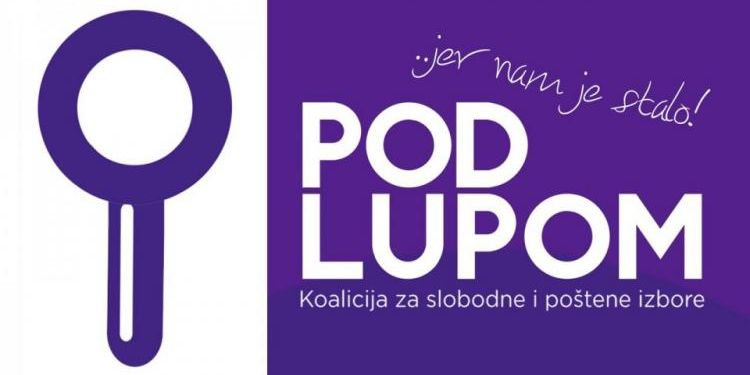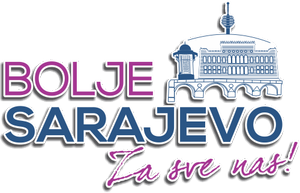
The work of executive and legislative authorities in BiH during 2013 was monitored by CCI representatives. Here you can read about performance of the governments and parliaments in BiH at state, entities' and cantonal levels in 2013. More...
During the period September 2013 - March 2014, CCI published reports on performance of cantonal, entities' and state authorities, presenting the level of responsibility, efficiency and effectiveness in 2013. Namely, in 2013 the authorities of almost all levels worked in the interest of their personal and political goals, not caring much to solve the priority problems of citizens of this country. Monitoring the performance of executive and legislative bodies in BiH is part of the project CSSP – Civil Society Sustainability Programme, which is financially supported by USAID.
Regarding the legislative activities, BH Parliament has shown the worst performance since the beginning of monitoring, because in 2013 it approved the total of 35 laws, while in 2009 (which was the third post-election year of the Parliament) it approved 46 laws.
Speaking of the Federal level, the result of inadequate focusing of FBiH Government is mostly felt by the citizens in the most important segment of life – jobs. The number of unemployed in BH Federation in December 2013 reached the figure of 391.942 persons. FBiH Parliament has shown worse performance with regards to enacting the laws in 2013, i.e. at a level which was by 30% worse compared to the last year. 49 laws were approved in 2012 by FBiH Parliament, and in 2013 only 34, that is to say, 15 laws less.
In the Republic of Srpska, similarly to the other authority levels in BiH, the Government tries to compensate for excessive public consumption, slow process of reforms and failure in attracting foreign capital by continued indebting, which should be stopped. The biggest problem that the RS citizens have with the Government is its inadequate choice of priorities in work and the lack of courage to face the most serious problems.


CCI sent the initiatives for reform of the budget policies to the addresses of all relevant institutions in BiH. More...
In January 2014 CCI sent the initiatives for the reform of budget policies to the addresses of BH Ministry of Finances and Treasury, BH Parliamentary Assembly, RS Finance Ministry, RS National Assembly, FBiH Finance Ministry, FBiH Parliament, 10 cantonal finance ministries and to District Brcko Finance Ministry. The focus of target reforms is increasing citizens' participation in budgetary planning and improving the transparency of budget realization, as well as consistent observance of recommendations contained in audit reports.
These activities are part of the project „Budget“ which aims at better understanding of the budget policy in BiH, in order to make this process simpler and more comprehensible/accessible to the public and citizens. The goal of the project is also to propose and advocate relevant and effective measures for improving public budgeting policies, increase transparency of the budgeting process and increase participation in the process of budget making at all levels of authorities in Bosnia and Herzegovina. More information about the project is available at www.budzetnarodu.ba. The project is financially supported by the Embassy of the Kingdom of the Netherlands in BiH.

CCI has published the analysis of pre-election promisses of the candidates for mayors in 13 cities, during the pre-election campaign for local elections in 2012. How many promises has been kept so far? More…
Within the project "Local administration for the quality of life of citizens – phase 2" funded by the European Union, CCI recorded pre-election promises of the candidates in 13 cities and municipalities of BiH . In the past year of the mandate of the elected mayors, fulfillment of the made promises has been recorded. Most of the candidates were much more cautious in making pre-election promises than in previous years, and in most of the monitored cities and municipalities, CCI recorded a relatively small number (less than 10) of made promises. Overall, there were 156 specific pre-election promises in all 13 cities and municipalities. Read more…
The main characteristic of the election campaign for the 2012 local elections was that it did not bring anything significantly new in communication with citizens, i.e. voters. Among the 13 monitored cities and municipalities, in 7 of them the winning candidates did not have, either personal or party municipal election programs, which were public and accessible to voters, while in 6 cities and municipalities, those programs were available. The most comprehensive program among the monitored cities and municipalities, i.e. among winning candidates, had the candidate for mayor of Trebinje, ahead of the coalition "Together for Trebinje", with 72 pre-election promises, of which 52 can be classified as relatively clear and measurable, while the others are based on a generalized political phrases and expected results that were difficult to measure. In contrast to this example, among the analyzed cities and municipalities, there were also candidates for mayors who had won elections with a rather small number of promises and without any available election programs, such as Zenica, Doboj and Travnik.
In comparison with the previous election years, the candidates this time were more cautious in giving pre-election promises, so the formulations in number of cases were general and difficult to measure. While, where they were accurate enough, were not followed by any time limits that would define the time of implementation and fulfillment of pre-election promises. Among the monitored cities and municipalities, specific phenomenon is the Municipality of Zenica, where the winning candidate for mayor won the elections with 65%, or more than 29,000 votes, by not making any pre-election promises, nor did he, during his earlier mandate, publish any work plans of projects and agendas that he would deal with during some of the budget, i.e. calendar years during his mandate.
A similar phenomenon is also the city of Doboj, where the winning candidate presented to the public a very small number of specific pre-election promises, of which a significant number, at the time of presentation, had already been implemented on the ground, and at the same time took absolute victory in 2012 local elections. An additional phenomenon related to these two communities was that the winning candidates did not show a tendency towards a large number of media appearances, and challenges through media or public events. A special issue was the use of public resources for pre-election campaign purposes, which was shown as the regular activities of those who ran for elections from the positions of authorities.
One of the often repeated pre-election promises of new-old Mayor of Bijeljina was the doubling of funds for the Agrarian Fund, while the result of the given pre-election promises, after the elections, was actually a decrease in comparison to the year of 2012. However, extensive infrastructure works on the ground, the beginning of the Gas Supply Project and the continuation of other projects started in the previous mandate, were the positive reflection of the made pre-election promises. The pre-election promises of winning candidates in Novo Sarajevo, Široki Brijeg and Livno were mainly based on the completion of previously initiated major infrastructure projects that required a longer period of time, so in Novo Sarajevo, there wasn’t an election promise fulfilled completely, while most of them were partly fulfilled. Among the most cautious candidates, when it comes to giving pre-election promises, was the new mayor of Foča, who gave less demanding and specific promises, so from 9 promises that we recorded, in the first year of the mandate he completely fulfilled 7, while 2 promises were partially fulfilled. Among the monitored municipalities, most systematic approach to the campaign, with promises complementary to a long-term vision of the community development, and determined deadlines and schedule of activities on the ground, had the winning candidates in Tuzla, Banja Luka and Bihać.
If we look cumulatively for all 13 monitored cities and municipalities, of the 156 recorded pre-election promises, there were 39 completely fulfilled, or 25%, partially fulfilled or started activities on their implementation - 65 or 42%, while 52 or 33% were not fulfilled at all. These data confirm the higher caution in making of pre-election promises in relation to the previous years, both in terms of quantity (number of the promises) and in qualitative terms, i.e. the importance and value that a pre-election promise, i.e. specific project on the ground, carries in the financial and every other sense.
Presented information on the fulfillment of pre-election promises cannot be directly and simply used for mutual comparison of results the mayors for several reasons. One reason is that they didn’t give the same number of promises. Then, fulfillment of the promises requires a different time and financial frameworks. Also, head to head comparison of promises is not possible, because they don’t have the same weight, whether as the impact on quality of life, either in terms of the resources required for their implementation. These reports have a purpose to draw attention, sometimes forgetful and dormant public, on the promises given before the local elections, and to be a constant reminder for citizens what their elected representatives publicly presented as the key elements of their work in the present mandate. At the same time, it should send to elected representatives a multiple message; to be accountable to their voters and to stand behind their words; and that during the election campaign, they shouldn’t sell stories to the citizens about projects and activities that cannot fulfill. Simplified, cheap political points before the elections must not be an option anymore. Sense of democratic elections is a voting for those candidates who offer a program to solve problems directly related to the quality of life of citizens. Consistency in the implementation of such programs, clear and measurable promises made to the citizens, should be the key in deciding of each voter.
14 public debates were organized throughout BiH from September 2013 to February 2014 by CCI. They aimed at promoting communication between the citizens and elected authorities representatives. This was an opportunity for citizens to learn more about the work of elected representatives. More...
Public debates were held in the following towns: Pale-Prača, Drvar, Zenica, Sarajevo, Kalesija, trebinje, Bugojno, Gračanica, Tuzla, Derventa, Kiseljak, Banovići, Zvornik, Velika Kladuša, Gradačac, Visoko, Čapljina, Odžak, Kakanj and Goražde. The debates gathered over 500 citizens, 38 media, 49 parliament members and 15 non-governmental organizations and business sector representatives.
In public debates the citizens have an opportunity to learn about the work of elected representatives working in different institutions, and inform them about their problems, point out at mistakes and drawbacks, present certain legal solutions, start certain initiatives, present their demands, make influence on the priorities in the work of the authorities and in solving some specific problems that are an obstacle for improving the quality of life in a community.
A TV team of CCI Internet television (Inicijativa.tv) made the coverage of the public debates and meetings of citizens with parliament members, so 13 half-hour shows were broadcast free of charge on BHT and via InicjativaTV. Time of broadcasting for the premiere is Saturday on 14:30h, while the reruns are on Mondays at 13:30h.
These activities were supported by USAID.
Increased participation of citizens in the budgeting processes – in the past 5 months CCI organized 7 public debates on draft budgets for 2014. More...
During November 2013 – March 2014, together with the local administrations and one cantonal ministry, CCI organized 7 public debates on draft budgets for 2014, in Brcko, Tuzla, Zvornik, Modrica, Banovici, Zenica, and Canton Sarajevo. The goal of these activities was to increase citizens' participation in the process of budget making, and improve transparency during adoption and implementation of the budget. Citizens asked similar questions, made similar recommendations and suggestions – they mainly related to investment in infrastructure in local communities, and to the ways of meeting the needs of budget users, financing associations, etc.
These activities are part of the project „Budget“ which aims at contributing to a better understanding of the budgeting policy in BiH, in order to simplify the budgeting process and make it more comprehensible/accessible for the public and the citizens. The project is financially supported by the Embassy of the Kingdom of the Netherlands in BiH. More information about the project is available at www.budzetnarodu.ba


„Education and Job“ is a new CCI's project implemented in cooperation with ALDI. The project aims at establishing a legal framework for adult education in BiH, by designing, advocating and monitoring adult education legislation at the level of the entities, cantons and District Brcko. More...
In 2014, in cooperation with the Agency for Local Development Initiatives (ALDI), and with the support of the European Union, CCI started the implementation of a two-year project „Education and Job“, which aims as improving the rights of the workers and workforce mobility by establishing a legal framework for adult education; i.e. by designing, advocating and monitoring legislation on adult education at the level of cantons, entities and District Brcko. The project will focus on enacting a coherent and harmonized legal framework throughout the country, in respect to education, requalification and additional qualification of adults. Its aim is to improve the situation in labour market, i.e. decrease unemployment and improve the position of socially marginalized groups.
During the first quarter of 2014, a number of meetings were held by CCI with all relevant stakeholders in the field of education and employment, ranging from the representatives of cantonal and entities' education ministries, employment services, chambers of commerce and employers' associations, to international institutions and local non-governmental associations. These meetings represented the first step toward establishing cooperation and ensuring support, as well as for making an analysis of the found situation in the field of adult education in BiH, with a comparative overview of good practices in the region and EU. The analysis is currently drafted, and will be presented in April in working groups, to be composed of the representatives of the above key stakeholders and CCI and ALDI project staff, at the level of cantons, entities and District Brcko. Based on recommendations from the analysis of the found situation, as well as other collected information, and inputs received through the work of working groups, a proposed policy draft will be created for improving the legislative framework of adult education, and the model draft law developed on adult education, and sent in the form of an initiative for scheduling and adoption by executive and legislative authorities in the country.
Furthermore, as part of the public debate on the Draft Law on Adult Education of ZDC, in mid-March CCI and ALDI forwarded their comments on the said Law. They plan to hold a meeting with the competent ministry on the concerned subject by the end of the month.
An initiative submitted for reform of legislation in the sector of labour and employment. How to reach more efficient and more transparent work of public employment services and how to decrease unemployment in BiH? More...
CCI spent the last year actively working on analyzing the causes of high unemployment rates in BiH. Having held the central conference, at which the final version of the analysis was presented, an Initiative was designed for reform of legislation in the sector of labour and employment. The initiative was sent to over 120 addresses, to competent labour ministries, leaderships of all parliaments and governments, as well as to the members of the committees responsible for labour and employment in both entities and in District Brcko. The initiative comprises the key conclusions of the analysis and recommendations for all actors to make the problem of unemployment and inefficiency of the work of public employment services a priority as soon as possible, by starting legislative projects, holding thematic sessions that would speed up and ensure the reform of the concerned legislation, all of which should lead to more efficient and more transparent work of public employment services, and finally to decrease of unemployment.
A website www.posaonarodu.ba which is in the function of giving broad information to citizens and a single place at which the citizens (and especially the young) can obtain all relevant information about their employment-related rights, job vacancies announced, employment subsidies and other useful contents, was upgraded in February by the introduction of on-line correspondence through social networks, and by adding a questionnaire for visitors. Draft publicity campaign was prepared in February in order to provide information about the work of public services to as many users as possible, so that they are able to understand the findings from monitoring reports of services’ work and support advocacy of policy proposal.
Meetings with the managements of all public services in BiH were held in January and February. In these meetings the CCI activities were given full support, and the interventions in legislation that would ensure a more efficient work of public employment services were supported – these interventions imply more just compensations for laid off workers and changing of the model of recording health insurance of the unemployed. During this period consultations and discussions were held with the representatives of entities' employment bureaus, relevant entity ministries responsible for labour and employment and a team was formed to draw up the amendments to legal or by-legal enactments in both entities as well as in District Brcko.
CCI has been implementing the project „Improving the efficiency of public employment services“ since the beginning of 2013. The project is supported by EU, and its goal is to advocate reforms in the field of employment and particularly the amendments to the existing regulations governing the work of public employment services (PESs). CCI carries out monitoring of work of the said institutions, their policies and practices, in order to increase responsibility and efficiency of PESs. More information about the project is available at www.posaonarodu.ba



















